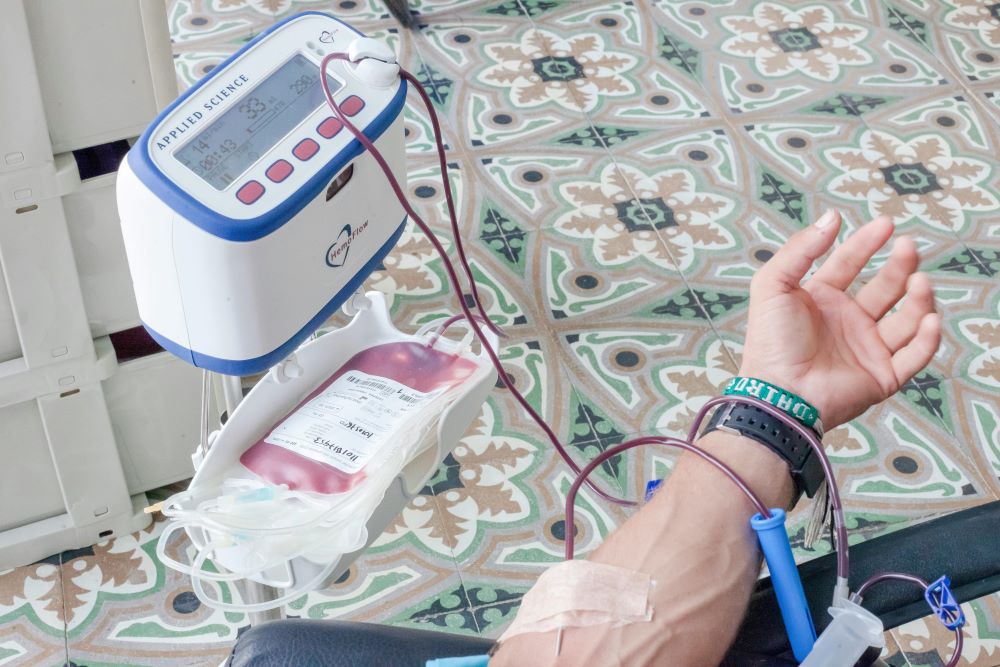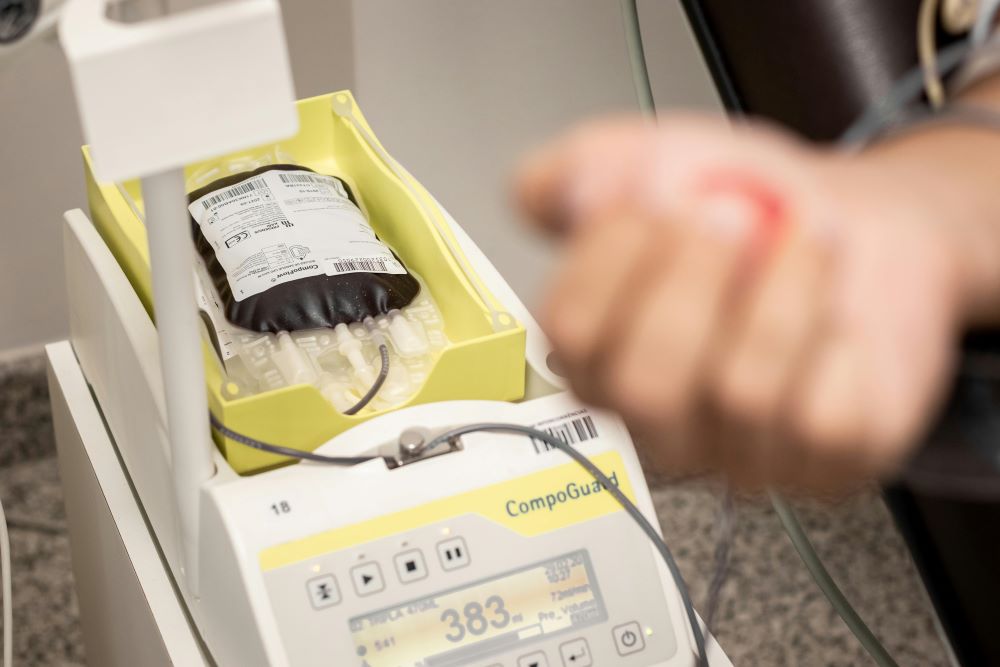Providing more blood to heart attack patients with low iron may improve outcomes.
Recent findings suggest that using transfusions to provide more blood to patients with anemia after a heart attack could improve survival rates. A study led by Rutgers Health, published in NEJM Evidence, builds on earlier research that showed a link between lower blood transfusion amounts and higher risks of death or recurrent heart attacks.
Dr. Jeffrey L. Carson, a professor of medicine at Rutgers Robert Wood Johnson Medical School, led both this study and an earlier 2023 called as MINT, which investigated transfusion strategies in anemic heart attack patients. Following the initial trial, Carson and his team decided to pool data from four similar studies to better understand the effects of different transfusion approaches. These trials collectively involved over 4,300 heart attack patients who also had low blood counts. Participants were divided into two groups: one receiving fewer transfusions and another receiving more.
The researchers examined the outcomes, focusing on death and recurrent heart attacks at 30 days and six months. While the difference in death or heart attack rates at 30 days was not statistically significant, the findings indicated a potential survival advantage at six months for patients who received more blood.
The average age of participants was 72, and nearly half were women. Many had other health conditions, such as previous heart attacks, heart failure, diabetes, or kidney disease. In these vulnerable groups, the results suggested that a more liberal transfusion strategy could improve long-term outcomes. The risk of death at six months appeared to decrease when patients received more blood during their hospital stay.

Carson has spent decades studying blood transfusion strategies and their impact on patient care. His work contributed to the development of guidelines published in 2012, which were updated last year to emphasize personalized treatment. These recommendations advise healthcare providers to consider individual medical histories, symptoms, and patient preferences when deciding on transfusion strategies.
The latest findings support the idea that anemic heart attack patients may benefit from receiving more blood, especially when considering longer-term survival. This approach contrasts with more conservative transfusion strategies, which have often been favored to minimize potential risks associated with blood transfusions, such as infections or reactions. However, the data from this analysis suggest that the benefits of a more generous transfusion policy could outweigh these risks in certain patients.
The research was funded by the National Heart, Lung, and Blood Institute, part of the National Institutes of Health. Collaborators from both France and the United States contributed to the study, underscoring the global importance of optimizing care for heart attack patients with anemia. By pooling data from multiple trials, the researchers were able to offer a clearer picture of how different transfusion strategies affect outcomes. While further studies are needed to confirm these findings, the evidence points to the potential life-saving benefits of adjusting transfusion practices for this group of patients.
This shift in thinking could have significant implications for how hospitals treat heart attack patients with anemia. Rather than focusing solely on immediate survival, the research highlights the importance of considering longer-term health and quality of life. For older adults and those with multiple health conditions, a more liberal transfusion approach may provide a better chance of recovery and reduce the risk of complications down the line. These findings encourage a re-evaluation of current practices, aiming to ensure that treatment decisions are informed by the best available evidence and tailored to the needs of individual patients.
Sources:
Transfusing More Blood May Benefit Patients Who Have Had a Heart Attack and Have Anemia
New research supports more liberal blood transfusion approach for heart attack patients
Restrictive versus Liberal Transfusion in Myocardial Infarction — A Patient-Level Meta-Analysis


Join the conversation!